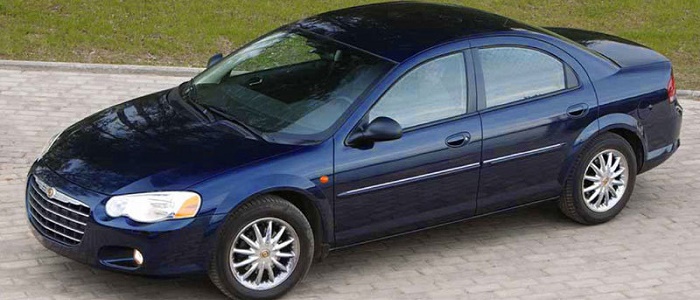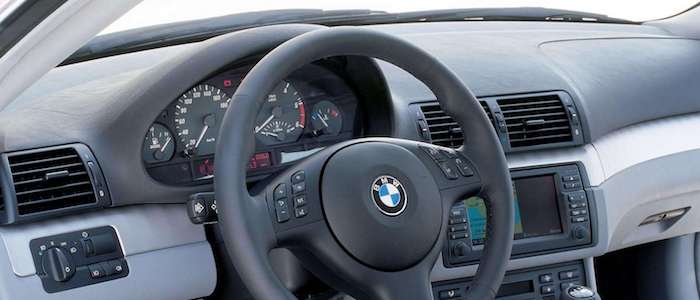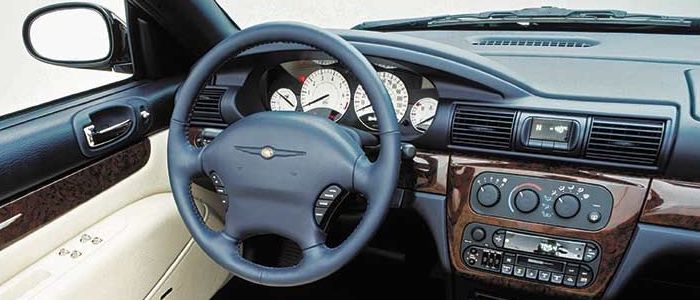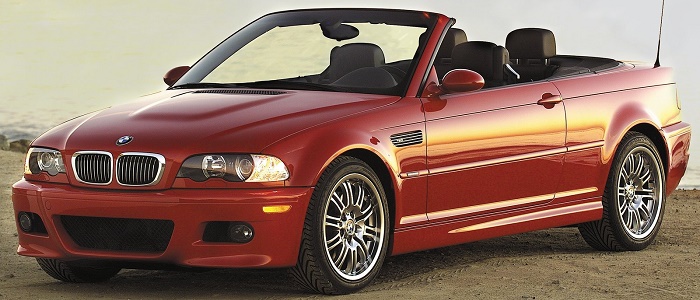Compare two cars
Compare any two cars and get our Virtual Adviser™ opinion
Dimensons & Outlines
Check a car with 30% off a report
Engine
Performance (manual gearbox)
Performance (automatic gearbox)
Expenses
Virtual Adviser's™ opinion
Two significantly similar cars, no doubt about that. Still, each one has something different to offer. Having both cars powered by petrol engines and utilizing the 4-door sedan body style within the same 'Large family car' segment, the only major difference here really is their wheel drive configuration (rear for the BMW and front in the case of the Chrysler). The first one has a BMW-engineered powertrain under the hood, a 4-cylinder, 16-valves 116hp unit, while the other one gets its power and torque from a 4-cylinder, 16-valves 140hp engine designed by Chrysler.
SafetyThe fact that the BMW got tested by the European New Car Assessment Programme (Euro NCAP), while the other contender didn't, offers a slight advantage, as the 4-star rating is better than none. Moving further on, let's take a closer look at some additional safety-related facts. Both vehicles belong to the large family car segment, which is generally a good thing safety-wise, but it doesn't do much to help us decide between the two. On the other hand, if we'd like to consider vehicle mass in this context too, which we definitely should, the American car offers a considerable difference of 10% more metal.
ReliabilityManufacturers have been building their reliability reputation for decades now and, generally speaking, it appears that BMW does have a slight advantage, at least on all of the models level. These are the official statistics, while our visitors describe reliability of BMW with an average rating of 4.1, and models under the Chrysler badge with 4.4 out of 5. Some independent research have also placed 3 Series as average reliability-wise, and Sebring is more or less at the same level.We should definitely mention that owners of cars with the same powertrain as the German car rank it on average as 3.0, while the one under the competitor's bonnet gets 4.3 out of 5.
Performance & Fuel economyBMW is a bit more agile, reaching 100km/h in 0.9 seconds less than its competitor. In addition to that it accelerates all the way to 206 kilometers per hour, 6km/h more than the other car. When it comes to fuel economy the winner has to be the German car, averaging around 7.1 liters of fuel per 100 kilometers (40 mpg), in combined cycle. We can't ignore that 20% difference compared to the American car.
Verdict
Chrysler appears just a bit more reliable, although the difference is truly marginal. The most important thing when deciding between any two vehicles should always be safety, both passive and active. In my opinion, everything taken into account, the German car offers significantly better overall protection, taking the lead here. It all continues in the same direction, with BMW being considerably quicker, thus putting more smile on driver's face. To make things even better, it consumps less fuel! All together, there's not much more to say, in this case I wouldn't even consider anything but BMW. Nevertheless, let's not forget that people have different preferences and needs, so what really counts is your personal feel. I'm only here to help. I suggest you spend two more minutes in order to find out which car, based on your needs and budget, would be picked by the virtual adviser™, among more than 12.000 different ones in our database.
Related articles
As we get closer to those few months of the year when it is not completely meaningless to own a convertible, I decided to do some research on the subject. Not because I enjoy having birds emptying their cloaca all over my leather seats every time I park under a tree...
































